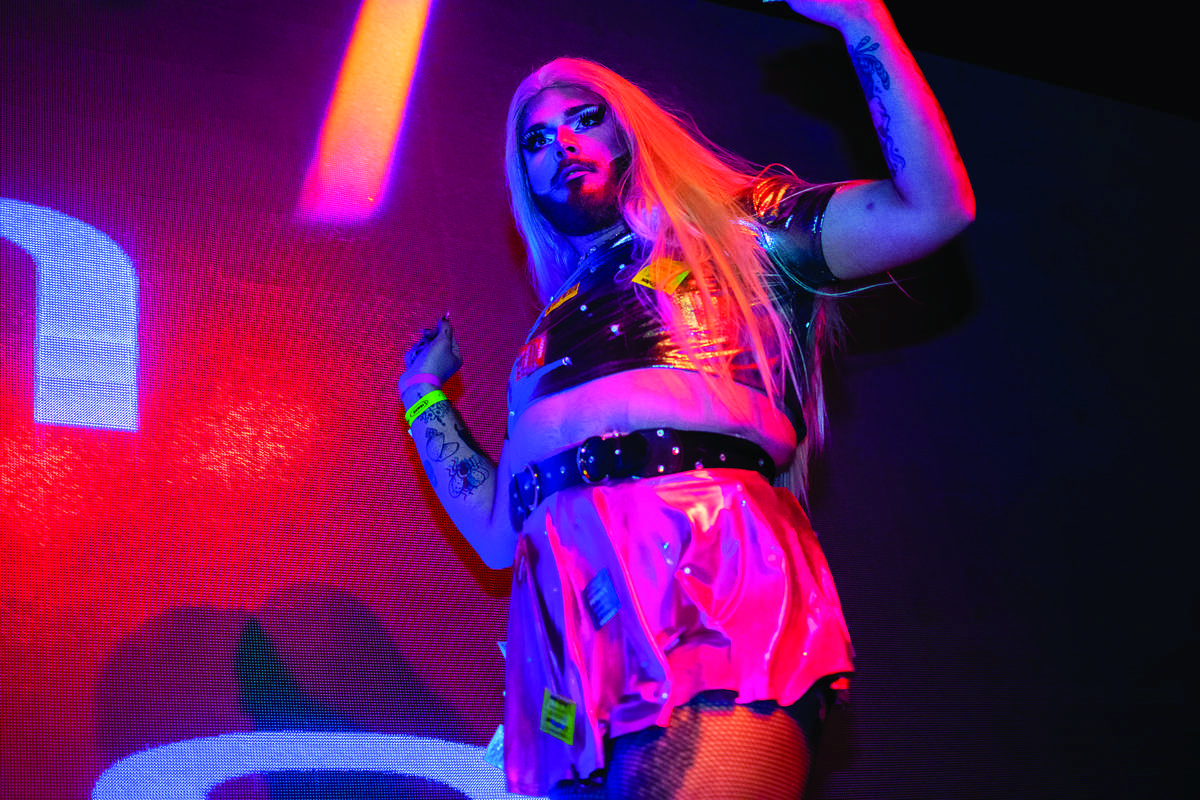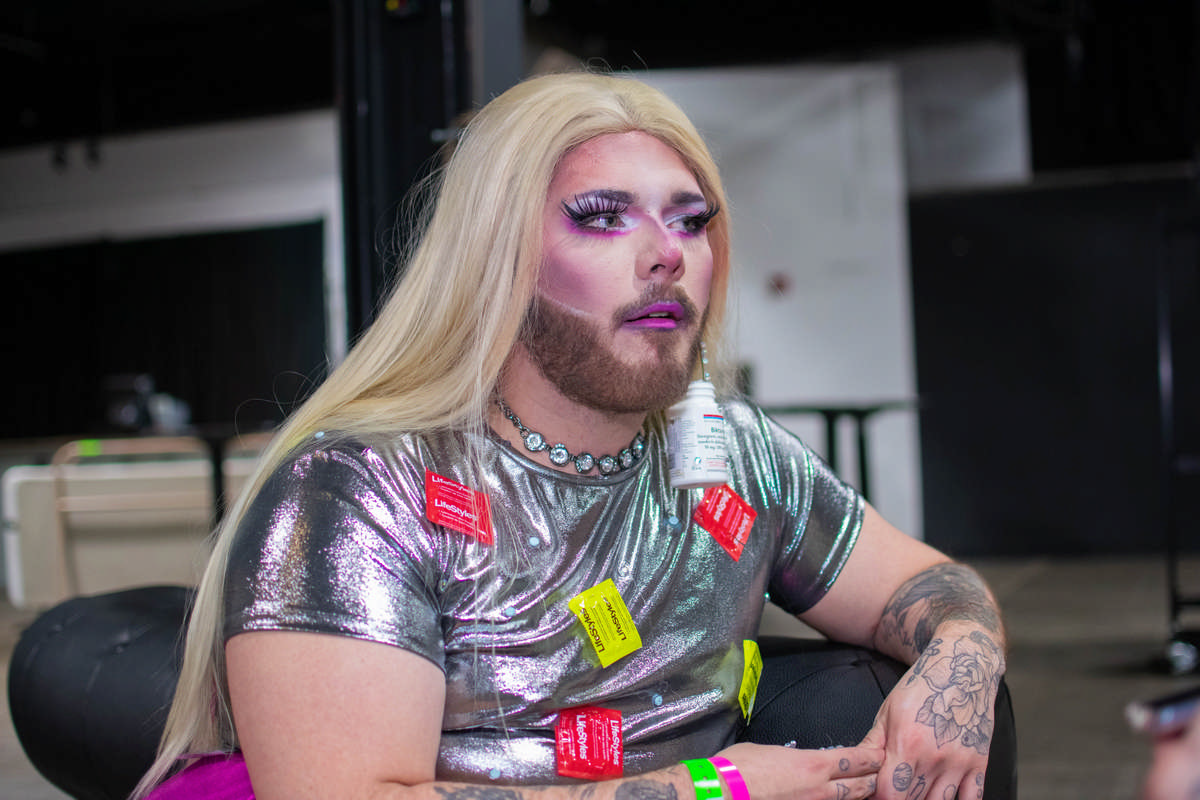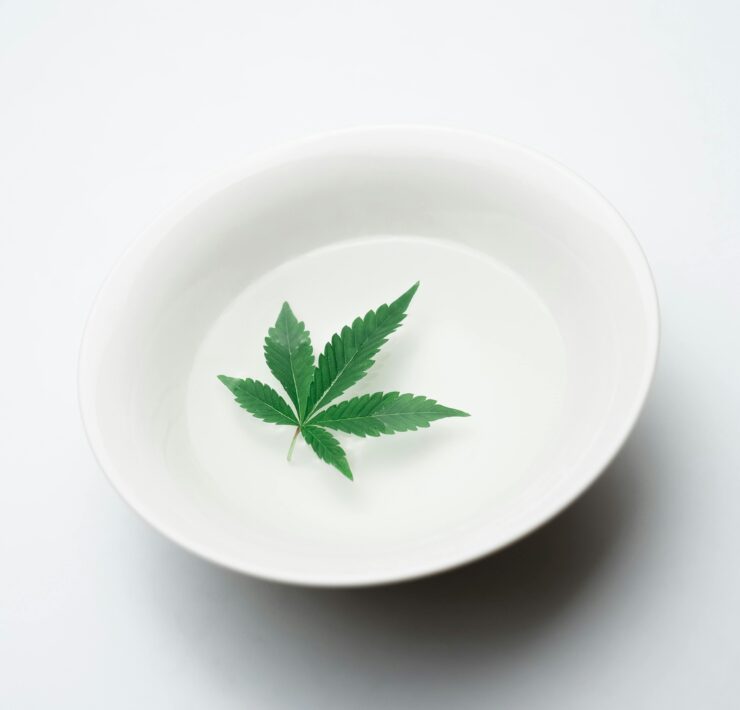Jehovah Thickness: High on Life

Life changed for local drag queen Jehovah Thickness on December 26, 2018.
“I was sick for three months; I had no idea what was going on with my body,” Thickness said. “When you first contract HIV, you develop these illnesses, and I had this weird inkling and thought, ‘I should be tested.’ It kept gnawing at the back of my mind, so I got tested the day after Christmas, and I was positive.”
Thickness shares this reality with over 39 million others, according to HIV Global Statistics, and it’s a reality they have been aware of since childhood. After coming out at 15, Thickness was kicked out of their childhood home. They moved in with a friend whose mother brought them along to informational seminars. There they learned more about HIV and the stigma against it and first discovered that people with HIV and AIDS shouldn’t be shamed—despite what others told them.
“Later, I moved back in with my family, and my dad had this strict policy that I had to volunteer at hospices where people were dying of AIDS, because he wanted me to stop being gay,” Thickness said.
Forcing LGBTQ people to see the “inevitability” of HIV and AIDS that comes along with their identities has been a popular conversion technique since the AIDS crisis of the 80s. HIV and AIDS have been referred to as “gay cancer” and “gay-related immune deficiency,” and these labels only added to the detriment that widespread deaths from HIV and AIDS brought to the community.
The constant fear-mongering that Thickness experienced, however, didn’t have the desired effect on them.
“As a kid, I had to watch that happen, and it molded me into someone who accepts everyone for who they are, because my dad didn’t accept me in any way,” Thickness said. “And, you know, oddly enough, when I was diagnosed with HIV, I called my dad first. When I was told that I have HIV, I took it really well. I wasn’t going to allow it to hold me back. I’m not going to destroy myself just because I have HIV; I’m going to try and build something better”

Despite their positivity, Thickness said that HIV took a major toll on their body in the beginning. Like most other viruses, HIV gives you fevers, chills, and aches within the first few weeks of incubation. Many people experience nausea and weight loss, too.
“Those few months I was so sick, I was nearly dying,” Thickness said. “Medical marijuana made it possible for me to get help and get through the beginning of being diagnosed with HIV. When I first got diagnosed they put me on Biktarvy, a medicine. It made me so tired; it gave me the craziest dreams, and it got me fired from my job, because I couldn’t stop oversleeping. I had to stop taking the medication I took for body pain because it interfered with my HIV meds. It was a lot of adjustment.”
On top of HIV, Thickness struggles with anxiety and depression, the symptoms of which are often exacerbated by the virus.
“They tried to put me on mental health meds, and it all made me manic,” Thickness explained. “This week, with the meds out of my system for a minute, I’m calm. I can focus. It gave me this awareness that I don’t need mental health meds right now. Weed is what’s really helping me.”
The days of cannabis being used only by people with cancer or seizure disorders are behind us; medical cannabis is now popularly used by people with anxiety and depression, chronic pain, and hundreds of other ailments. Medical cannabis use by people with HIV can be dated back to the early 90s, when doctors used synthetic THC to stimulate the appetites of patients with HIV wasting syndrome.
Today, the diversity of medical cannabis extends to include CBD products, which provide relief for mental illness symptoms, physical pain, and insomnia.
“I’ve also started using CBD products regularly; the CBD helps so much with my anxiety,” Thickness said. “One night, my roommates brought home a bunch of CBD stuff and offered me a CBD dab before bed. Best sleep of my life. They introduced me to a bunch of products, and it really started turning things around for me. CBD started helping me with my sleep cycle, my anxiety, and my mania.”
Thickness doesn’t limit themselves to medical cannabis usage, though—they’re an avid recreational smoker, too.
“I love dabs and concentrates,” Thickness said. “That’s my thing. They’re so beautiful, and so straight-to-the-point. I’m a very straightforward individual, and that is reflected in my weed use. Dabs get to the point. I love every f*cking second of it.”
Overall, Thickness refuses to deny themselves the simple pleasures of life simply because of HIV.
In fact, they’re using their platform in the community as a drag queen to bring more awareness to HIV prevention and destigmatization. Thickness recently performed a number about HIV prevention and positivity during Activism Week for Ultimate Queen Competition 2019 and wants to continue bringing attention to the issue.
“The most important thing I want people to know about HIV is that together we can end this,” Thickness said. “It’s preventable. This is something that, if we take a moment to pause and stop judging one another, and stop stigmatizing, and we start to look at one another as a community, we can actually eradicate this. Just take a few seconds and listen to each other. Getting on PrEP, getting regularly tested—they could have prevented me from getting HIV, and we need to be preaching that, along with compassion. Be kind to one another, and let your friends and family know that, no matter what the test result is, you love them, and you’re there for them.”
Photo by Julian Colas










